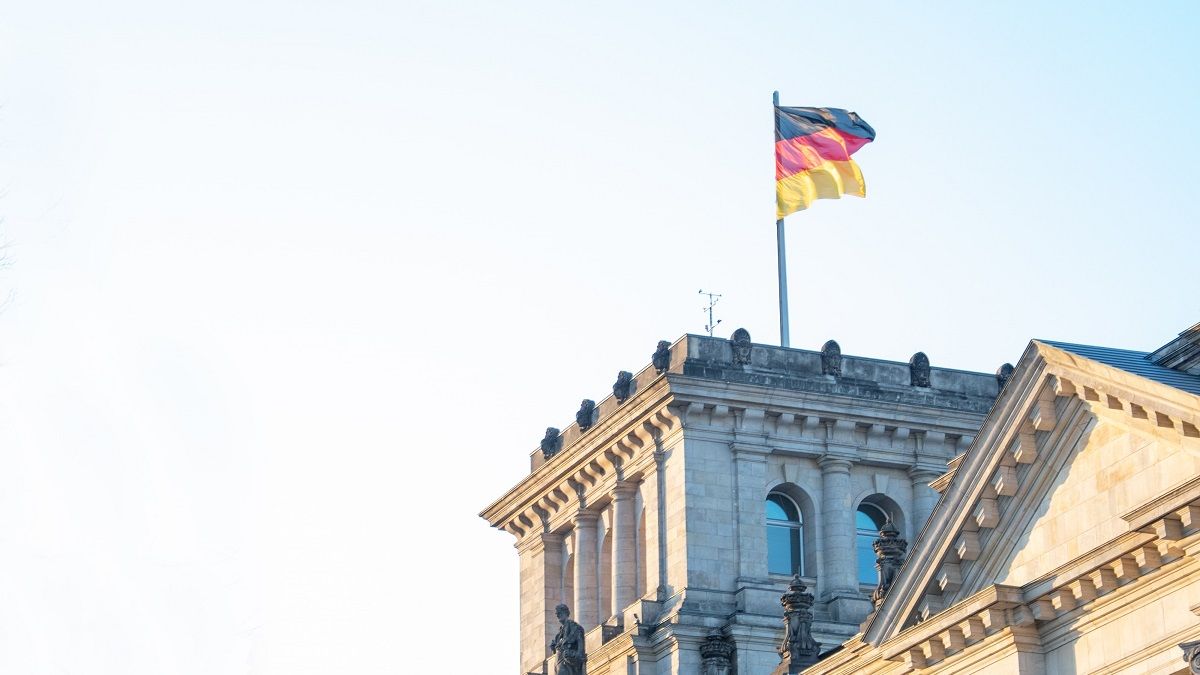Gaining a new head of state should be exciting, a natural inflection point between the leadership of the past and that of the future. A time to reflect and to draw a deft boundary between the old and the new.
This should be especially so here in Germany, where our current chancellor, Angela Merkel, is looking to step down after 16 years in charge of Europe’s largest economy. But the switch in power, which is due to happen next week, is almost subdued, despite the inclusion of punk legend Nina Hagen’s ‘Du hast den Farbfilm vergessen’, which is to be played at Merkel’s passing-out ceremony on Thursday.
Wrote the Guardian earlier this week: “The Großer Zapfenstreich ceremony will be more low-key than usual because of coronavirus restrictions, with only 200 guests in attendance.”
Much of this is reminiscent of Joe Biden’s swearing-in as US president on 20 January earlier this year. That event went pretty much as usual, despite missing the customary one-to-two million-strong crowd and the incumbent’s predecessor, who had flounced off that morning in a huff.
The low-key nature of the transition between Merkel and sure-thing Olaf Scholz looks likely to reflect the nature of leadership. Scholz, despite being almost unknown to all outside of Germany this year, has a raft of impressive credentials: a former Mayor of Hamburg, he has been the vice-chancellor in Merkel’s government, along with its finance minister. And earlier this year, he was tasked with bringing order following the flooding in North Rhine Westphalia.
Slow and steady wins the race
The one thing Scholz has never been renown for is radicalism. His tenure, therefore, is not expected to bring any great deviation. Nor would Germany want it. The country is, despite the hedonism of its capital; very, very conservative in its manner. It is a nation that values boringness and stability. A tight election between the two leading candidates of Scholz and Armin Laschet was notable for just how boring but capable the two men were.
As The New York Times sagely put it back in September: “[…] the two leading candidates are anything but exciting, and that’s how Germans like it.”
Becoming the chancellor of Germany should be the culmination of a lifetime’s dream. But I am not sure that anyone right now would want to inherit the mess that Scholz will.
As I write this, Germany has plunged into a fourth wave of the covid-19 pandemic, and this wave is statistically much worse than its three previous iterations. According to the Robert Koch Institute, over 67,000 people tested positive in the last 24 hours.
On 8 November, Deutsche Welle reported that the covid incidence rate went over 200 for the first time. A week later, it went over 300. As of Wednesday this week, it was at 442.9.
Reuters reported that the daily death toll from covid reached 446 on the same day, the highest in nine months. This is while the vaccination rate has tailed off, leading the government to impose severe restrictions on the unvaccinated, a move that both seems desperate and sure to backfire.
Little lockdown appetite
Meanwhile, the Omicron variant has been detected in three cases to date. So much like the Jackal in The Day of the Jackal, it is already circulating the country, even if there is little clear idea of how.
So far, no one seems to be talking seriously in Berlin about further lockdowns, but my feeling is that this is a conversation that has been stalled while the main political parties were in conversation as to the make-up of the next government.
This may be understandable, but it is a gross dereliction of duty if true. But this is what happens when politics usurps governance.
Scholz, when he enters office—and not if—faces an uphill battle. After nearly two years of fighting covid, and with news about Omicron making it seem as if this new variant will send everyone back to the starting point, the nation is exhausted. Some children are now entering their third year of interrupted schooling. The health insurance companies are making noises about wanting to divest themselves of the potential costs of treating the unvaccinated should they fall severely ill. Opposition to restrictions is growing.
And has it been mentioned that there is a fuel crisis going on?
It is never a good idea to fall in love with a politician; they tend to be unfaithful and let you down.
But I am sincerely going to miss Angela Merkel. In 2015, a surge of refugees seeking asylum in Europe caused most of the continent to go into paralysis. It was at this point that Merkel threw open the doors, welcoming with open arms over a million people into Germany.
At the time, she said, “I put it simply, Germany is a strong country. The motive with which we approach these matters must be: we have already managed so much, we’ll manage this.”
It was a moment of great leadership, borne out of humanity, and with an understanding that some things are bigger than ourselves and our petty, squabbling party politics. A year later, there was a surge in baby girls being given the name ‘Angela’ at birth.
If Scholz provides no great shift away from the Merkel era, there will be no great criticism from this quarter.







